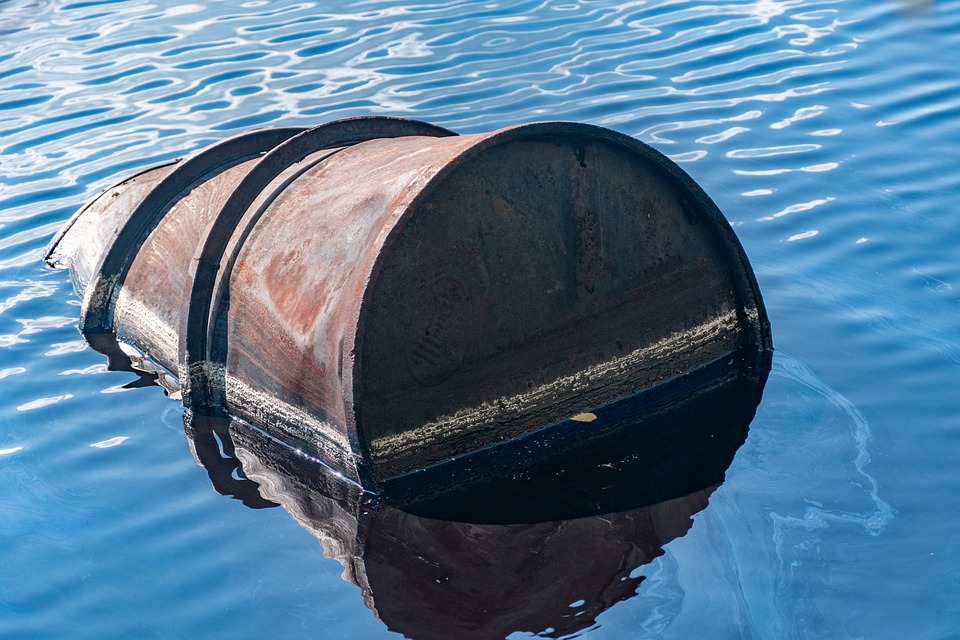Oil Sorbents: Types and What Makes a Good Sorbent

Oil sorbents come in a wide range of types and formats, which means you’ll need to do some research. From loose sorbents to pads, there are lots of options.
Oil spills are terrible for the environment and can be challenging to clean up. However, spills occur all the time. Most of them are smaller and result from a leak or workplace accident. The National Plan goes into action for large spills, such as when a ship loses its load of petroleum. However, individual companies are responsible for cleaning small spills.
The simplest way to clean up an oil spill is to use oil sorbents, which help absorb the oil. The sorbents make it much simpler to clean up the disaster and can be used in the water and on land in most cases.
What Are Oil Sorbents?
Sorbent materials have hydrophobic properties. This means they reject water so they don’t become loaded down with it. Instead, the oil sorbents absorb the oil molecules. They prevent them from ending up in the soil or water, where they will do more damage.
Spills happen, but it’s how you handle them that matters.
Types of Oil Sorbents
There are several types of sorbents for oil that you may use. Let’s take a closer look:
Loose Sorbents
Loose sorbents are helpful as the final part of a cleanup. It also works very well with spills on the soil and cracks in the floor. After cleaning most of it up, spread the loose sorbents over the spill. Then you can sweep or scoop up the sorbent full of oil.
Pad and Rolls Sorbents
Sorbent mats are a useful part of any oil spill cleanup. You can get just the pads, square or rectangular pieces of absorbent material. Lay the mat over the spill and used to contain it fairly rapidly. Another option is the same thing but on a roll. You cut your own mat, and you determine the size. This is best for larger spills or where the oil has already leaked and you need to cover more space.
Pillow Sorbents
This oil spill cleanup device is a pillow filled with sorbents for oil. It is easily moulded into corners and tight areas where it may be difficult to use other sorbents. Due to the size, pillows can absorb large amounts of oil.
Loose Fibers
Loose fibers are often made up of natural elements and work for one-time use. Scatter the fibers over the spill, where they will absorb the oil. The fibers are then scooped up and removed from the area. They may be burnt or otherwise safely disposed of.
What Makes a Good Sorbent?
The best sorbents for oil are those that fit your needs. Here are the top things to consider when selecting a sorbent for your workplace:
Sorption Rate
How fast will the oil be absorbed? This consideration is crucial since you don’t want the oil trickling away to other areas. You want to ensure it can’t contaminate anything else but gets absorbed. Check with the company to determine how fast it absorbs.
Capacity
How much oil can the sorbent absorb? If you oversaturate a sorbent, it will release the oil when lifted up. This can end up causing more of a disaster and additional cleaning. Ideally, the capacity of the oil sorbent will be quite high, as it needs to work for any spill you have in the workplace.
Oil Retention
Another thing to consider is how well the sorbents hold the oil when moved. Sometimes, they release the oil, resulting in further contamination and more cleanup. Check with the company to determine which sorbent prevents this issue.
Application
How you apply the sorbent will also affect your choice. It’s often simplest to use a pad or pillow. These options are simple to use, and you can pick them up in one go. However, loose sorbents work well to soak up large spills, and oil seeps into cracks.
What Type of Oil Sorbents Are Good for Your Oil Drum Top?
If you have an oil drum with a leaky top, it’s important to prevent that oil from getting everywhere. The simplest method of absorbing the oil is to use a pad cut to shape on top of the barrel. You can use loose sorbents, but they’re much harder to get off later.
Where to Purchase Oil Sorbents
Are you looking for the best oil sorbents around? At Ecospill, we offer a wide range of sorbents that will help you keep everything under control. If you need help deciding which absorbent materials and presentations are best, we can help.
